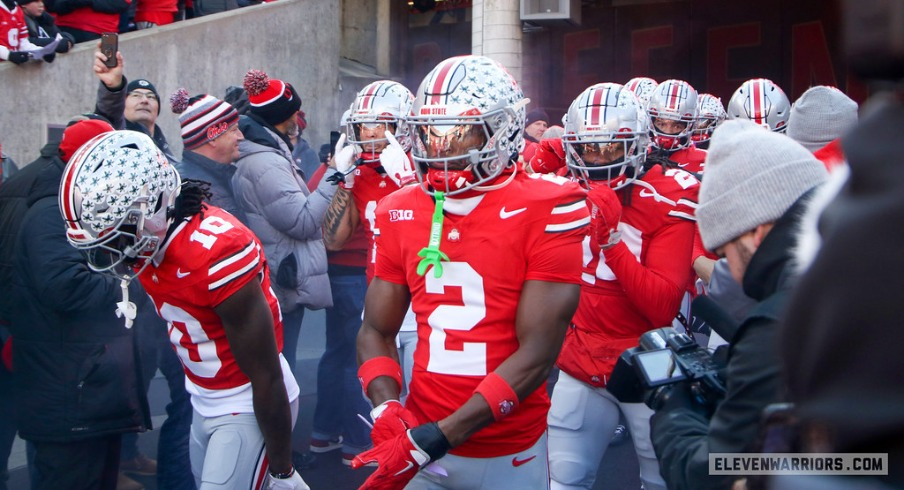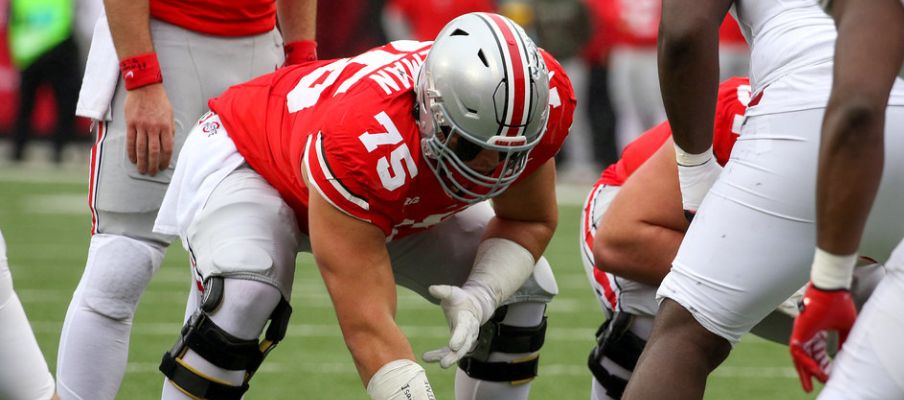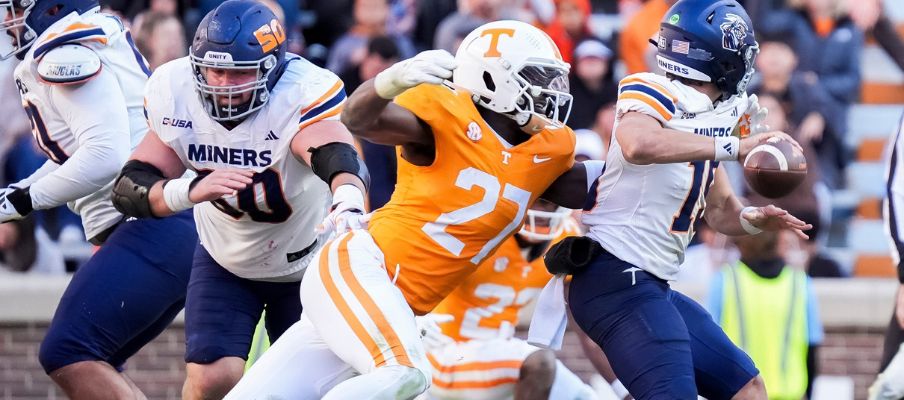Tennessee
Tennessee Encampments: “This Is A Solvable Problem.”

The Hospitality Hub was opened its doors in Memphis last year supporting a diversity of client … [+]
In this post, I’m following up a post last week about Tennessee’s challenge with a law banning camping on public right of way. I had a dialogue with Jarad Bingham principal at Dragonfly Collective in Memphis who I have interviewed in the past about his work in Memphis addressing the needs of unhoused people. Bingham has worked over the years to build the Hospitality Hub, “a holistic approach to helping individuals transition out of homelessness.” In that post, I noted that, “In Seattle, the divide is roughly between the “sweep ’em and lock ’em up” crowd and people that mindlessly defend the status quo because it is “compassionate” and feel it is wrong to force norms on people in the encampments.”
I also noted how much I appreciated “Bingham’s nuanced views and work are what’s needed in the tangled web of politics and inflationary policies that are neither effective nor edifying.”
Recently, his organization managed to tackle a local highway encampment effectively with just such nuance. Using outreach efforts and expertise, workers from the Hospitality Hub began slowly moving people out of encampments on highway right of way. There was a pressure to move; the camps were going to be cleaned up. But the Tennessee Department of Transportation gave workers from the Hospitality Hub passage to use their skills and the knowledge they gained from working with individuals in the camps.
Bingham finds that a leading problem to moving people out of encampments is high barrier, congregate shelter. Often, people living in an encampment on the right of way, or anywhere, are doing so precisely because they can have freedom and privacy, something valued by everyone. Bingham’s outreach workers ask what is a basic economic question: “Is there any place you’d rather be.” Listening to the answer and responding, along with supportive case management to address underlying addiction mental health issues, has become an abiding principle in the work of clearing encampments.
Here’s our exchange about that challenge I addressed in a post last week and how the encampments were dismantled and people got help.
How about some background. What got you motivated to address the encampment issue?
We spent a lot of time thinking about encampments. I went out to LA and visited the one from the cover of Harpers– they had three tents illuminated from within and the text, “Where Would We Go?” I visited San Francisco. We wrote a pro forma for a managed site with tents in Memphis, (I was going to ask North Face to sponsor us). We did put hammocks in our plaza, which is a beautiful urban park without some of the invisible barriers that civic space can have. But in the end, we just couldn’t get comfortable with the idea that some people need to be sleeping outside. Once that was off the table, we got to work designing better solutions.
In the last post, I outlined what appeared to be an intractable problem in Memphis and in other places in Tennessee; a new law made camping or living on public property not only illegal but a felony. What led to this law and do you agree with it or disagree with it? Why or why not?
Let me quote a doctoral candidate at the University of Memphis who came to work with us this Summer. His name is Sharif Hossain, and he is from Bangladesh. His first day with us we had him sit at the front desk on our primary campus and watch people come through and be greeted by Terri Conley’s giant smile or Sam Smith’s comforting eyes. He had a couple of Masters degrees, one in public policy, and I had briefed him on our programs, but when he saw the way human centric design embodies the program elements on both sides of the desk, he was inspired to find me and tell me about why it was so meaningful.
He said that “homelessness is America’s shame,” and I think he’s right. The context for the Tennessee law is the existence of extreme poverty and of literal homelessness and the prevalence of panhandling and the growth of encampments in cities across the country. People are ashamed, both the people living outdoors and the people who walk or drive by, and that shame drives anger or compassion or any number of easier things to feel, including new legislation. Agree or not, the TN law is policy reality now, and the new question is “how do we manage compliance on this new policy initiative?”
Do you think the divide between people who want to, reasonably perhaps, enforce the law and those who favor less intervention has gotten worse? Why?
In one way the law gave substance to anxieties on a continuum of concern for and against people sleeping outside or just being visibly poor outside, but I have not noticed a stronger divide. My experience has been that there are always people against what you do. It is safer to not do than to do. Even now that there is a law, there is a resistance to enact it.
Let’s get specific. You had the City pointing at the State, and the State pointing back at the City. Why did you want to get into the middle of that?
For a lot of reasons, but the through line is that our organizational value is derived from our capacity to solve extremely difficult problems. At the micro level, we are experts at co-developing paths out of homelessness for the endless variety of individuals who seek our help. One click further out, we design nuanced solutions for gaps left by HUD program compliance, and we partner with government, NGOs and philanthropists to fund most of our pilot and long term projects. We provide an important service for maintaining the civic commons. From here it’s easy to see how we’re implicated: our people are the ones living outside, and our partners are the ones stalemated in the search for a solution. Public pressure was mounting. You’re exactly right, I did want to get in the middle of it.
What was the solution and approach to untangle this?
It was a two-part solution, and one part we already had. We had already built an Outreach team, led by Liza Hubbard, who is the embodiment of wisdom from our organization in the field. Under bridges. Deep into forests. Following up on people in hotels and when they get out of treatment and doing all the remarkable work to find people where they are and help them make a solid step away from living outside. We run 120 hours a week, all day, every day, snow, ice, like the mail used to be. Liza’s team and our organization’s thought-out discomfort with encampments is why there are relatively few tent encampments in Memphis today. This interview is about sites on State right of way, which is beyond the control of the City, and therefore beyond our set of permissions.
The second part of the solution was clarifying jurisdiction. I doubt we’re unique in Memphis in that where the city has no right of way and the state does, the city will not enforce, and the reverse is true. I’m sympathetic to them wanting each other to own up to their responsibilities. I’m also sympathetic to the deep resistance both sides have to policing, rounding up, imprisoning or just displacing people from land that could be described as not their responsibility. And I’m sympathetic to the resistance anyone would have to being asked to do something they don’t know anything about. By giving the state the opportunity to support our claims to subject matter expertise and de facto jurisdiction, we were able to get both teams pulling in the same direction.
Outreach visits each site every day to create the conditions of trust that can lead to better outcomes. They found residents, they remembered names, they asked the all-powerful question “is there a place you’d rather be than here?” And they helped the majority of campers find a better path in under two weeks. They follow up every day. They make visits to programs, they give rides from detox to treatment, they call sisters and mothers. A few won’t take help until the last day, and even fewer move on somewhere else, but the effort breaks the inertia of the camps. The last day, after weeks of engagement, Outreach coordinates with CARES team members and CIT to introduce the reality of enforcement. None is needed. The state sends equipment and our work crews arrive to clean the site. Ten thousand residents drive home to a different view than the one which greeted them during their morning commute.
Was it a success and why?
Bubba and Amy were two of the most recent campers. They accepted help, but bailed when we suggested a path to obtain State ID. Liza’s team found them outside again and learned the story: Bubba had a misdemeanor warrant in a neighboring state, and they were afraid he’d be sent to jail. We called across state lines to pull the criminal record and learned that the warrant was minor, a decade old, and would not be valid in Tennessee.
We shared that with Bubba and Amy, and now they’re on their way to permanent, stable housing in Tennessee. Of course, a felony conviction wouldn’t have helped them, but we avoided that for Bubba and Amy and dozens of others through creating a structure of human centered, trauma informed care and then hiring and training for it and then supporting it with the resources it needed to become a civic institution that could broker a truce between municipal and state factions to offer a better way forward.
What can be learned from this and do you think it can be duplicated? Why or why not?
We are fortunate to have made the time to think through the implications, possibilities and limitations of encampments when we did. The scale of the problem matters, so in Memphis, where we have worked to keep the numbers low, we can generally afford to invest in individuals, case by case. Encampment people are not going to submit to congregate shelter. If that’s what you have, then it will be difficult to offer a genuine answer to the field question “Is there any place you’d rather be?” So that gets expensive.
But yes, given an appropriate budget for non-congregate shelter design and construction, and time to build and staff a human centric operations team, you could do what we do anywhere. This is a solvable problem. I keep thinking the new crop of MacArthur inspired philanthropists will find us, fund our work and extend it to other places
What would you say to those who want the law enforced and those who are concerned about making people struggling with mental illness, addiction, and housing illegal?
I would say that society has to make a choice, and one option, which has been well tried, is to lock away things we don’t like. The felony does that. A felony is by definition a crime for which punishment is over one year of incarceration. That’s how the law defines a serious crime. If we are serious about the transgressions of social norms that affect our civic commons, we have to be serious about providing alternative choices to the ones that aren’t working now.
Finally, the Housing First model is under increasing scrutiny, including proposed legislation to require allowances for federal funding be used for faith based and sobriety-based treatment and shelter. What do you think about Housing First, harm reduction, and how can those approaches be balanced with a broader public health approach?
If I were in charge of HUD, I wouldn’t replace housing first, but I would retool it around trauma response. I would make ample, trauma informed emergency shelter the priority, and I would build out Coordinated Entry as a secondary triage to serve placement into housing. I would adjust the scoring matrices to account for trauma informed best practices. I am generally opposed to trying things that have already failed, particularly as policy initiatives.

Tennessee
Ohio State vs. Tennessee Preview: Buckeyes Enter First-Of-Its-Kind Home College Football Playoff Game Leaning on Defense With Offensive Line Questions

When toe meets leather for Ohio State vs. Tennessee, it will kick off a one-of-a-kind college football atmosphere.
10 – 2 (6-2)
Dec. 21, 2024 – 8 pm ET
Ohio Stadium
Columbus, OH
Saturday brings the first-ever College Football Playoff game in Ohio Stadium and the first-ever December tilt in the Shoe. The Buckeyes’ opponent for said firsts is an SEC foe, one which will travel north to play in temperatures that will feel below 20 degrees. An 8 p.m. kickoff will provide a night-time atmosphere fans have long craved since Ohio State played six consecutive noon games to close its regular season.
The postseason stakes are obvious. If the eighth-seeded Buckeyes handle business at home against the ninth-seeded Volunteers, a date with top-seeded Oregon at the Rose Bowl in the CFP quarterfinals awaits. If they lose, their all-in season ends without any hardware.

More than that, head coach Ryan Day and the assistants he employs face an uncertain future after a disastrous 13-10 loss to Michigan on Nov. 30, the fourth straight time the Wolverines have beaten Day’s program. Athletic director Ross Bjork may be backing his football coach entering the CFP, but a third straight season ending with back-to-back losses would have to call Day’s job security into question.
Tennessee is no slouch of an opponent either, featuring a stifling defense and consistently effective run game that should challenge the Buckeyes on both sides of the ball.
“I’m excited for our players, but I’m excited for our fans to get back together this Saturday in the Shoe for a historic event,” Day said on Monday. “This is right now the first time it’s ever happened before, and I think for everyone to get back together is exciting. And I know our players are that way.”
The Headlines
Man the Interior

Center Carson Hinzman leads a group of interior offensive linemen who need to rise to the occasion for Ohio State.
Two season-ending injuries to left tackle Josh Simmons and center Seth McLaughlin have cost the interior of Ohio State’s offensive line its two best players since former left guard Donovan Jackson has slid out to replace Simmons. The unit is coming off two rotten performances.
Cracks started appearing against Indiana, where the Buckeyes rushed for just four yards per carry and only achieved that number thanks to a 39-yard run by TreVeyon Henderson in the final minute of a blowout 38-15 victory. Take out that play and Ohio State managed just 76 yards on 28 carries, 2.7 yards per attempt. OSU picked up just three yards per carry against Michigan, with left guard Austin Sierevled, center Carson Hinzman and right guard Tegra Tshabola looking completely overmatched by Michigan defensive tackles Mason Graham and Kenneth Grant.
That prompted a shakeup of the unit, and now sophomore Luke Montgomery will work in and potentially start at left guard. Day said that Siereveld will rotate with both Montgomery and Tshabola as the Buckeyes run through different lineups to see what can get the ball rolling against Tennessee.
Day and offensive coordinator Chip Kelly also noted that the Buckeyes need to do a better job scheming around their holes up front. That means more ingenuity on the ground, but also probably a heavier reliance on the passing game.
“You got to get the ball to those guys (at wide receiver),” Kelly said. “We’re really talented on the perimeter and sometimes people are scheming up to take things away, play two deep (safeties) and double cover some guys and force you to play a little bit left-handed. And I think you still have to find ways and we have to be creative enough that you can still get the ball in those guys’ hands.”
Tennessee’s defensive line is among the nation’s best. Defensive end James Pearce Jr. is a projected first-round draft pick and starting defensive tackles Bryson Eason and Omari Thomas weigh in at 310 and 325 pounds, respectively, with a combined 12 TFLs in 2024. There’s depth too, as seven Volunteer defensive linemen have played more than 210 snaps this year, per Pro Football Focus. Tennessee is eighth nationally in rushing yards allowed per game (99.6) and fourth in yards allowed per carry (2.8).
“They know how they need to play in this game,” Day said of Ohio State’s offensive line. “Not that everything has to be perfect, but we gotta rock off the ball and knock people back. They have a good front. Might we swing and miss every once in a while? OK. But we’re not gonna swing and miss by not being aggressive. We’re going to be aggressive. We’re going to go after these guys and make sure we’re moving back the line of scrimmage.”
Pin down the ground game
| Ohio State | Pos | Tennessee |
|---|---|---|
| OFFENSE | ||
| WILL HOWARD | QB | NICO IAMALEAVA |
| TREVEYON HENDERSON | RB | DYLAN SAMPSON |
| JEREMIAH SMITH | WR | BRU MCCOY |
| EMEKA EGBUKA | WR | CHRIS BRAZZELL II |
| CARNELL TATE | WR | SQUIRREL WHITE |
| GEE SCOTT JR. | TE | MILES KITSELMAN |
| DONOVAN JACKSON | LT | LANCE HEARD |
| LUKE MONTGOMERY | LG | ANDREJ KARIC |
| CARSON HINZMAN | C | COOPER MAYS |
| TEGRA TSHABOLA | RG | JAVONTEZ SPRAGGINS |
| JOSH FRYAR | RT | JOHN CAMPBELL JR. |
| DEFENSE | ||
| JT TUIMOLOAU | DE | DOMINIC BAILEY |
| TYLEIK WILLIAMS | DT | BRYSON EASON |
| TY HAMILTON | DT | OMARI THOMAS |
| JACK SAWYER | DE | JAMES PEARCE JR. |
| SONNY STYLES | WLB | ARION CARTER |
| CODY SIMON | MLB | JEREMIAH TELANDER |
| DENZEL BURKE | CB | JERMOD MCCOY |
| DAVISON IGBINOSUN | CB | RICKEY GIBSON III |
| JORDAN HANCOCK | NB | BOO CARTER |
| CALEB DOWNS | FS | WILL BROOKS |
| LATHAN RANSOM | SS | ANDRE TURRENTINE |
Tennessee’s spread, high-tempo attack is centered around an effective ground game, a physicality that should serve the Volunteers well as hits are felt in cold weather. Stopping that element of their offense will be essential for Ohio State.
The Volunteers rank No. 9 in the country in rushing yards per game (232) and No. 26 in yards per carry (5.1). Running back Dylan Sampson, the SEC Player of the Year, has been a consistent gasher of opposing defenses, collecting 10 100-yard rushing performances during the regular season and averaging 5.8 yards per carry.
If the Buckeyes can successfully contain Tennessee’s rushing attack, its passing offense just isn’t as consistent or efficient. The Volunteers are 62nd nationally in passing yards per game (230.9) and 32nd in completion percentage (64.7%). Quarterback Nico Iamaleava can’t be ignored as a threat on the ground either with 311 rushing yards this year.
“He’s faster than everybody thinks,” Ohio State defensive coordinator Jim Knowles said. “He’s fast, and he makes a lot of plays with his feet.”
Tennessee creates space for Sampson and Iamaleava in part through wider splits for their wide receivers and tight ends, which line up further away from the offensive line than most teams to draw linebackers and safeties away from the box.
“Sometimes it kind of stretches the linebackers outside the box,” linebacker Sonny Styles said. “You get a linebacker apex between the endman and the receiver. So you’re coming in from a wider angle to make the play. It’s a little different than what you see with most teams. You apex a lot, but not to that extent. So you got to counteract that with different looks. You might not be apexing all the time. Sometimes you might stay in the box. Sometimes you might not match the receivers’ width.
“But I think you got to be sharp with your eyes. When you’re coming from that far, you got to know exactly what you’re seeing. And once you see, you got to go because you got a lot of space to make up.”
Suppressing the running game will be the first step to stymying Tennessee’s offense.
Lean on the Defense
Outside of the team’s 32-31 loss to Oregon this season, the most points Ohio State’s defense has allowed in 2024 is the 17 Nebraska scored on Oct. 26.
The defense has been dominant enough to live up to its Silver Bullets moniker of old. Knowles’ pupils possess the No. 1 scoring and total defense in college football. The Buckeyes are No. 2 in passing yards allowed per game (144.3) and No. 7 in rushing yards allowed per game (96.8).
Ohio State’s defense tried to carry the team to victory against Michigan, but the offense killed the momentum generated by Caleb Downs and Jack Sawyer’s interceptions and all of the other stops made by the unit as the Buckeyes failed to score in the second half. Not that Knowles is using that to shrug off any responsibility.
“Did we win? No, we did not,” Knowles replied when a reporter said the defense must have felt it had done enough to beat Michigan. “It’s that simple. This is a team game. It’s the greatest team sport there is, and if it takes (a score of) 3-0, it’s 3-0. We have to look at it and always strive for perfection. Every game’s different, so you’re not going to walk away from a game in this sport at this level and say, ‘Well, we did our job.’ That’s not how it is.
“These guys sweat and bond, and we all know the time and effort they put in. They stick together, so whatever it takes to win, either you do or you don’t. There were plays that we could have made. There were, and our guys would tell you that.”
As it applies to Tennessee, the spread, RPO-heavy, up-tempo style of its offense is unlike many Ohio State has seen this season, save for Oregon and the occasional two-minute drill. But Knowles said his defense has been “built” for no-huddle offenses since he was at Duke in 2010.
While Tennessee’s receiving corps isn’t the caliber of what the Ducks diced cornerback Denzel Burke with in Week 7, with only one wideout above 450 yards, the Volunteers can threaten deep with leading receiver Dont’e Thornton. Thornton has 25 receptions for 647 yards and six touchdowns, averaging 25.9 yards per reception, the most in the country.
Ohio State will hope to move the ball better with an improved game plan that involves its vaunted receivers more, but its offensive line is still patchwork. The Buckeyes will have to rely on their defense to reach the CFP quarterfinals.
Watch Out for These Guys
Tennessee RB Dylan Sampson
Sampson picked up 1,485 rushing yards and 22 touchdowns this season, both marks leading the SEC. Many of his carries will come out of run-pass option looks, forcing defenses to respect the passing game as he gets downhill.
“He’s a smart runner,” Ohio State linebacker Cody Simon said. “He’s patient, but he’s got a good feel for his blocks. And I mean, he’s a great player. He won SEC Player of the Year for a reason. So it’s a big challenge for us and we’re up for that challenge. We enjoy being able to look for players to try to stop and have a real focus on in-game. They’re going to do a good job with him. We’re going to have to do a better job.”
Tennessee DE James Pearce Jr.

Defensive end James Pearce Jr. anchors Tennessee’s defensive front. (Credit: Brianna Paciorka/News Sentinel / USA TODAY NETWORK via Imagn Images)
Pearce has piled up 35 tackles, 11 tackles for loss and 7.5 sacks for the Volunteers, the latter two numbers team-highs. He’s had at least one tackle for loss in seven of Tennessee’s past eight games, and will test the development of Ohio State left tackle Donovan Jackson, who has held his own against some other elite edge rushers in November.
Ohio State S Caleb Downs
The Buckeyes’ loss masked an unbelievable performance by Downs against Michigan, as the unanimous All-American safety piled up 11 tackles with an interception. Ohio State utilized him in all sorts of areas be it back deep, in the slot or in the box, and expect more of the same from the queen of Knowles’ chess set.
Game Week Talk
“The Shoe isn’t as loud as the SEC. It’s a different animal here. Whether you’re at South Carolina at nighttime or whether you’re at Arkansas at nighttime, whether you’re at Neyland (Stadium) at nighttime, or the daytime for that matter, it’s loud here.”– Former Ohio State/Current Tennessee safety Andre Turrentine
Safety Andre Turrentine, who spent his freshman year in Columbus before transferring to Tennessee, provided some potential bulletin board material to Ohio State – or at least its fans. To say the Shoe is quieter than Arkansas or South Carolina’s home venues should be a motivator to Saturday’s patrons.
Ohio Stadium provided raucous environments for the Indiana and Michigan games and should be charged up for a playoff game at night, regardless of whether there’s a bit of orange mixed in.
“Tempo, spread you out horizontally, vertically, and then they’ve done a very good job running the ball. Their running backs are running very hard. Offensive line’s doing a good job and quarterback’s played well this season.”– Ryan Day on Tennessee’s offense
It’s more than the above-mentioned splits that Tennessee uses to space out defenses. Between Thornton’s deep threat and the horizontal passes mixed into the Volunteers’ RPO game, they can stress teams in all areas of the field.
“Great confidence in both of them. Jermaine also. … There are ups and downs in any season, in any career, but those guys are great players, and they’re really good people, and they work hard, and they’re resilient, and they bounce back, and they’re going to have a great game.”– Jim Knowles on Denzel Burke and Davison Igbinosun
Burke allowed seven receptions for 162 yards and two touchdowns against Oregon, per PFF, but he’s otherwise played well for Ohio State this season. He hasn’t allowed more than 36 yards in any other game, and against Indiana’s high-powered aerial attack he surrendered just one catch for 6 yards.
Davison Igbinosun might be one of the most penalized defenders in college football, but he’s also allowed just 21 receptions for 249 yards and one touchdown this season. He’s collected seven pass breakups and two interceptions, including one of the best defensive plays in Ohio State history at Penn State.
Tennessee is sure to test Burke and Igbinosun vertically. But Knowles has confidence in them and top backup Jermaine Mathews Jr., alongside stud nickel Jordan Hancock, to hold up in coverage.
Get Smart
- Ohio State suffered a 20-14 loss to Tennessee in the 1996 Citrus Bowl, the only previous meeting between the two teams.
- Ohio State has a 3-4 record in College Football Playoff games while Tennessee is making its first CFP appearance.
- This game will be the first ever played at Ohio Stadium in December.
- The game will be Ohio State’s ninth home game of the season, marking the first time since 1910 that the Buckeyes have played nine home games in one year. It’ll be the first time the Buckeyes have ever played nine games at Ohio Stadium in the same year.
- ESPN’s College GameDay will be in Columbus for the second time this year and at the site of an Ohio State game for the fourth overall time this season.
- Former Ohio State safety Andre Turrentine is now a starter for the Volunteers.
- Former Ohio State cornerbacks coach Taver Johnson is now a defensive analyst for the Volunteers.
- Tennessee’s roster includes three players from Ohio: wide receiver Jackson Locke (Granville), tight end Titus Rohrer (Bryan) and offensive lineman William Satterwhite (Barberton). None of them have seen regular playing time this season.
- Ohio State’s roster includes no Tennessee natives, though Quebec-born freshman tight end Max LeBlanc played his high school football at the Baylor School in Chattanooga.
How It Plays Out
Line: Ohio State -7.5, O/U 46
More Ohio State vs. Tennessee Coverage
This has all the makings of a low-scoring brawl. The cold weather will slow things down a touch, Ohio State’s been dominant on defense since its second bye week and Tennessee is more complete on that side of the ball as well. Both offenses have deficiencies, the Buckeyes on the offensive line and the Volunteers with their passing game consistency.
The talent on the Buckeyes’ roster should give them the tools they need to come out victorious, especially if Kelly and Day draw up a better scheme than the plan of shoving the ball up the middle against Michigan’s vaunted defensive tackle tandem three weeks ago.
Thirteen of Eleven Warriors’ 14 staffers picked Ohio State to win, the lone holdout being senior editor Johnny Ginter. Everyone sees it as a close call, however, with 12 predictions having the Buckeyes by 10 points or less.
 |
24 | 17 |
 |
Tennessee
Collierville Police present colors in Tennessee Titans face-off against the Bengals

COLLIERVILLE, Tenn. (WMC) – The Collierville Police Department had a special role in the Tenessee Titans’ game this week.
The Collierville Police Department Honor Guard presented the colors as Tennessee faced off against the Cincinnati Bengals.
While the Titans lost, CPD says its team represented Collierville with pride and professionalism.
Click here to sign up for our newsletter!
Click here to report a spelling or grammar error. Please include the headline.
Copyright 2024 WMC. All rights reserved.
Tennessee
Why Big Lots announced going out of business sales at remaining locations. What to know about closures in Tennessee

Big Lots: Rising inflation forcing retailer to close dozens of stores
Big Lots plans to close 35-40 stores this year, highlighting economic challenges facing large retailers. The closures include four stores in Michigan.
Big Lots has closed over 400 stores in 2024 and has now announced going out business sales across its remaining locations.
On Thursday, Big Lots announced in a news release that it did not anticipate a sale to Nexus Capital Management going through. In this deal, Nexus Capital Management would have taken over Big Lots by early January helping the chain achieve financial stability.
Here’s what to know about Big Lots closures in Tennessee.
Is Big Lots closing all its stores?
Big Lots does not have any plans to close all of its stores yet. The going out of business (GOB) sales are a way for the company “protect the value of its estate,” according to their statement. The goal is for the sales to allow Big Lots to continue being a company that is financially stable enough to meet obligations and continue business in the near future.
“We all have worked extremely hard and have taken every step to complete a going concern sale. While we remain hopeful that we can close an alternative going concern transaction, in order to protect the value of the Big Lots estate, we have made the difficult decision to begin the GOB process,” said Bruce Thorn, Big Lots’ President and Chief Executive Officer,
The company filed for Chapter 11 bankruptcy in September after announcing the original plan to close less than 50 stores in July. There have been over 400 stores announced for closure since then.
Which Big Lots stores in Tennessee are closing?
As previously reported by USA TODAY, the stores closing in Tennessee include two stores outside Nashville and one in northwest Tennessee. They are:
There has been one store added to the closing list:
How many Big Lots are there in Tennessee?
There are a total of 47, soon to be 43, Big Lots stores across Tennessee. Locations include Chattanooga, Clarksville, Memphis, Knoxville and more. A complete list of Big Lots stores can be found at local.biglots.com/tn.
Why is Big Lots closing stores?
High inflation and interest rates are impacting Big Lots like many other stores. Additionally, a news release from the company said economic trends like customer spending on home and seasonal products, have affected the company’s revenue.
The company had previously reported that sales in the first quarter of 2024 fell more than 10% compared to the previous year. The company did perform better in the second quarter, yielding improved comp sales.
“While the company’s underlying performance has been improving, the Board of Directors conducted a broad strategic review of alternatives and determined that entering into the Sale Agreement with Nexus, and initiating a court-supervised sale process, is the best path forward to maximize value and ensure continued operations,” wrote Big Lots in the news release.
-

 Politics7 days ago
Politics7 days agoCanadian premier threatens to cut off energy imports to US if Trump imposes tariff on country
-
/cdn.vox-cdn.com/uploads/chorus_asset/file/25782636/247422_ChatGPT_anniversary_CVirginia.jpg)
/cdn.vox-cdn.com/uploads/chorus_asset/file/25782636/247422_ChatGPT_anniversary_CVirginia.jpg) Technology1 week ago
Technology1 week agoInside the launch — and future — of ChatGPT
-
/cdn.vox-cdn.com/uploads/chorus_asset/file/25789444/1258459915.jpg)
/cdn.vox-cdn.com/uploads/chorus_asset/file/25789444/1258459915.jpg) Technology6 days ago
Technology6 days agoOpenAI cofounder Ilya Sutskever says the way AI is built is about to change
-

 Politics6 days ago
Politics6 days agoU.S. Supreme Court will decide if oil industry may sue to block California's zero-emissions goal
-
/cdn.vox-cdn.com/uploads/chorus_asset/file/25546252/STK169_Mark_Zuckerburg_CVIRGINIA_D.jpg)
/cdn.vox-cdn.com/uploads/chorus_asset/file/25546252/STK169_Mark_Zuckerburg_CVIRGINIA_D.jpg) Technology7 days ago
Technology7 days agoMeta asks the US government to block OpenAI’s switch to a for-profit
-

 Politics1 week ago
Politics1 week agoConservative group debuts major ad buy in key senators' states as 'soft appeal' for Hegseth, Gabbard, Patel
-

 Business5 days ago
Business5 days agoFreddie Freeman's World Series walk-off grand slam baseball sells at auction for $1.56 million
-
/cdn.vox-cdn.com/uploads/chorus_asset/file/23951353/STK043_VRG_Illo_N_Barclay_3_Meta.jpg)
/cdn.vox-cdn.com/uploads/chorus_asset/file/23951353/STK043_VRG_Illo_N_Barclay_3_Meta.jpg) Technology5 days ago
Technology5 days agoMeta’s Instagram boss: who posted something matters more in the AI age
















